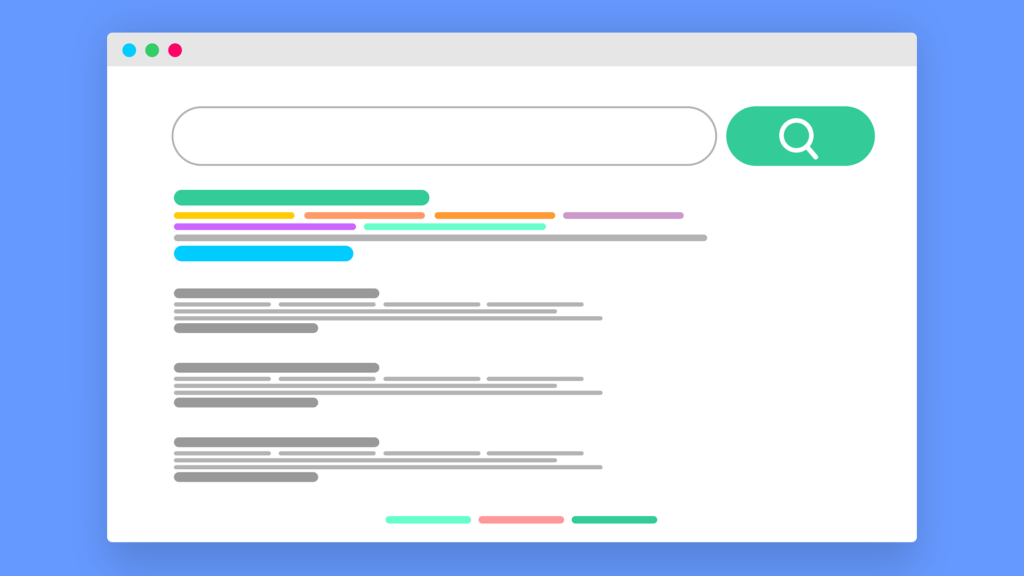SEO For Financial Advisors (Guide) [2025]
The Importance Of SEO For Financial Advisors
Getting to the top of Google isn’t easy for financial advisors. If you type “financial advisor Ipswich” into Google, you’ll see over 1 million results!
So how do you stand out?
The good news is that it is possible, with the right marketing plan, time, and tools. It’s worth the effort too, because people who find you through Google are often ready to take action.
The best way to get results is to work with a marketing agency that understands SEO (search engine optimisation) for financial advisors.
But there are also plenty of things you can do yourself to build a strong online presence.
The Most Effective SEO Strategies For The Financial Advisor Industry With These Quick Tips
I’m not going to explain all the basics of SEO for small businesses here because I’ve already written a full guide about that (you can check it out here).
If you’re new to SEO, I suggest reading that first and then coming back to this. This article dives deeper into how financial advisors can make their websites work even better with targeted SEO for financial advisors strategies.
And even if you’re not a financial advisor, don’t leave just yet, you might still pick up something useful.
Alright, let’s get started!
Improve Your Site’s E-E-A-T For Search Engines
E-E-A-T stands for Experience, Expertise, Authoritativeness, and Trustworthiness. It’s a key principle in SEO and plays an important role in how well your website ranks in search engines like Google. In short, it helps search engines decide how much confidence they should place in your content, and stronger E-E-A-T can lead to increased search traffic over time.
To meet E-E-A-T standards, your content should be helpful, accurate, and focused on providing real value to people, not just written to rank or get clicks.
Google encourages you to evaluate your content using three key questions:
- Who created the content? Sharing the author’s name, background, and expertise builds trust and credibility.
- How was the content created? A clear process, supported by research, data, and care, shows reliability and professionalism.
- Why was the content created? The purpose should be to inform and assist readers, not just to boost search rankings. Content that puts users first is more likely to earn trust.

Conduct A Сomprehensive Technical Audit Of Your Website
Doing a full check-up on your website’s tech side is super important if you want it to show up better on Google.
Here’s a simple step-by-step guide to help you do a technical audit:
- Scan Your Website: Use tools like Screaming Frog, Ahrefs, or SEMrush to scan your site. They’ll show you problems like broken links, error pages, or redirect issues.
- Check If Pages Are Showing on Google: Use Google Search Console to find out if all your pages are being found and listed by Google. Look out for errors or problems with your sitemap or website security.
- Test How Fast Your Site Loads: Tools like PageSpeed can help you see how long your pages take to load. Slow websites can annoy people and rank lower on search results.
- Make Sure It Works on Phones: Use Google’s Mobile-Friendly Test to check if your site looks and works well on phones and tablets.
- Review Tags and Text: Look at your titles, descriptions, headers, and image tags. Make sure they use the right keywords and are written clearly.
- Fix Links: Check all your links. Fix any that are broken or pointing to the wrong place. Also, make sure you’re linking to good, helpful websites.
- Secure Your Website: Use HTTPS to keep your site safe. Look for any security problems that might put your site or users at risk.
- Look for Duplicate Content: Use tools like Copyscape to find content that’s been copied. Google doesn’t like repeated or stolen content.
- Review Your Content: Go through your pages and make sure the content is helpful, clear, and up to date. Remove anything that’s old or confusing.
- Check User Experience: See how easy it is for people to use your site. Is it easy to find things? Are the colours and buttons clear?
- Make a To-Do List: Write down what needs fixing. Start with the most important things like speed and security, then move on to SEO and content updates.
Optimise For Voice Search
Voice search isn’t just a trend anymore, it’s something lots of people use every day. With smart helpers like Alexa, Siri, and Google Assistant, many of your potential clients now ask questions out loud like, “What’s the best retirement plan for me?” instead of typing them into Google.
To make your website work better for voice search, write in a more natural, conversational way. Use full questions like people actually say. For example, instead of a heading like “Inheritance Tax Planning,” try something like “How Can I Reduce My Inheritance Tax?”, because that’s how people ask it when they speak.
You should also add a Frequently Asked Questions (FAQ) section to your site. This helps answer common questions clearly and shows that you’re a helpful expert, especially to people using voice search.

Up Your Website Speed
If there’s one thing I’ve learned from working in SEO, it’s that nobody likes a slow website, and that goes for all websites, not just ones for financial advisor. I don’t like them either. If a page takes more than 3 seconds to load, most people (including me) just hit the back button and look somewhere else.
If your financial website is slow, don’t be surprised if your Google Analytics shows people leaving quickly, not staying long, and not taking action.
The good news? The faster your site is, the more likely people are to stick around—and the more likely they are to contact you or become clients.
One easy way to speed up your site is by shrinking large image files that take a long time to load.
Check Your Mobile Responsiveness
If your financial website doesn’t work well on phones or tablets, it probably won’t show up high in search results until it gets fixed or redesigned.
Luckily, there are some free tools you can use to see how mobile-friendly your site is:
These tools can show you what’s working and what needs improvement. If the fixes are small, you might be able to do them yourself, if you’re comfortable with website updates.
But if there are bigger issues, it might be time to redesign your website so it works better for mobile users and stays strong in search rankings with improvements like faster load times, better navigation, and proper schema markup to help search engines understand your content.
Create Landing Pages
Think about this: someone who’s retired and wants help with pension planning needs very different advice than a young professional who’s just starting to invest. But many financial advisor websites treat everyone the same. That’s where personalised landing pages come in, they help you talk to each type of client more directly and make your website work better.
Start by making separate pages for each of your main services, like “Retirement Planning,” “Investment Advice,” or “Inheritance Tax Planning.” On each page, speak directly to the people who need that service. Use easy-to-understand language, talk about their worries, and explain how you can help.
You can make each page even better by changing the style to fit the audience. For example:
- A page for young professionals might include money-building tips and fun tools like investment calculators.
- A page for retirees might focus on staying financially safe and include real stories from people in similar situations.
Make sure each page includes the right keywords so people can find them on Google, and always include a clear button or message that tells people what to do next, like “Book a Free Call” or “Get Started Today.”

Add Original, High-Quality Content Such As Blogs And Keyword Research
It’s no exaggeration, good SEO starts with strong content.
If your financial website has unique, helpful, and interesting content that your audience cares about, Google is much more likely to show your site higher in search results, especially when it’s backed by smart keyword research.
A smart way to get ideas is to look at the questions people ask on Google. For example, if you type “when can I take my pension” into the search bar, Google will suggest other related questions people are asking.
Writing blog posts and articles that answer these questions is a great way to help your audience, show your expertise, and stay relevant online. It also tells Google that your site is active and up to date, which can help your rankings.
On top of that, blogging regularly helps you build trust with your readers by sharing useful financial advice. Try to post at least once a month to keep your content fresh and your clients engaged.
Don’t Forget To Update And Refresh Old Content
Financial laws, tax rules, and market trends change often, so your website content needs to keep up. Make sure your articles, guides, and service pages are updated with the latest information, such as new interest rates, loan terms, or changes to investment products.
Search engines like Google also prefer websites that stay current. Refresh your on-page SEO content from time to time by updating your SEO keywords based on what people are searching for, improving your page titles and descriptions, and making sure all internal links lead to the most relevant and updated pages. Combine this with smart link building strategies to improve your authority and visibility online.
It’s also smart to listen to your audience. Look at the comments or questions people leave on your site, and update your FAQs, blog posts, or guides to give better answers. This helps your readers and shows that you’re paying attention to their needs—building trust and drawing in more qualified prospects.
However, don’t make updates just to make updates. Changing content too often without adding anything new or useful can actually hurt your site’s performance. Aim to review and refresh important pages about once a year, only when there’s real, valuable information to add, especially for local SEO and financial advisor SEO, where up-to-date and relevant content can improve visibility in your area and connect with the right audience.

Common Mistakes To Avoid In Financial Planner For Local SEO
Here are four common mistakes people often make, not just financial advisors:
- Forgetting About Mobile Users
Almost 88% of Australians have a smartphone. Whether you consider that a good thing or not, doesn’t change the fact that your website must work well on phones. If it doesn’t, both your customers and Google are less likely to take your site seriously. - Using Too Many Keywords
Some people think stuffing a page with lots of keywords will help them rank higher. It doesn’t. It actually makes the page hard to read and can hurt your rankings. A better approach is to focus on one clear topic and write naturally about it. - Not Using Analytics
There are free tools, like Google Analytics, that show you what’s working and what isn’t on your site. If the tools are available and don’t cost anything, why not use them? They can help you improve your website without guessing. - Ignoring Industry Rules
Giving out financial advice without checking the latest laws or including proper disclaimers is risky. Outdated or incorrect information could be illegal and damage your reputation. Make sure your content is accurate, up to date, and includes the right legal notes.
Reduce Jargon On Your Financial Website
This one might seem a bit strange at first.
If you want people to see you as a financial expert, shouldn’t you use big financial words to prove you know your stuff?
Actually, no.
Some visitors to your website might understand all the technical terms about pensions, investing, and taxes. But most people don’t, and instead of feeling confident, they end up feeling confused, overwhelmed, or even a little scared.
What they really want is someone who can explain things clearly and calmly. If your website uses too much financial jargon, there’s a good chance they’ll leave and fast.
And when people click on your site and leave quickly, Google sees that as a bad sign and may rank your site lower in search results.
That doesn’t mean you should avoid important terms altogether. Some people will search for those specific words on Google, so you still need to include them, but do it carefully.
For example, if this article had started by throwing around words like “crawling,” “indexing,” “KPI,” or “SERP” without any explanation, you might’ve clicked away before even finishing the first paragraph.
So, the goal isn’t to dumb things down, but to speak clearly and simply. Use language your clients understand, without talking down to them. That’s how you build trust from the first click.
Conclusion
In 2025, SEO for financial services isn’t just about using the right keywords or getting backlinks anymore. It’s about creating a full financial SEO strategy that focuses on helping users and building a strong brand.
As more people turn to the internet for financial advice, having the right SEO plan won’t just be a nice extra, it will be essential for any financial business that wants to grow and succeed now and in the future.
All of this might seem like a full time job, and that’s because it is. So let us handle all the stress of Google, so you can focus on things that really matter.







